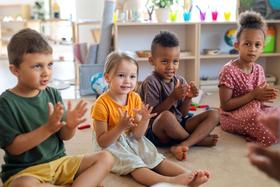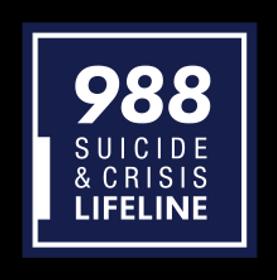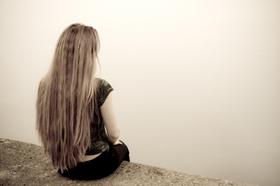The recent events at historic Saint Paul's School in Concord, New Hampshire, raise questions for us considering private school. The story was hard to miss as it seemed to air virtually non-stop for a week. Against that backdrop, let's look at things from our parental perspective.
What are the odds of this happening in the school our children attend?
Probably not very likely at all. Statistically speaking, very few incidents such as this occur in private schools annually. I searched carefully to see what I could find about private school scandals past and present. There weren't many, perhaps a handful or so of incidents annually. You can find my search results at the end of this article. The sensational coverage of the Saint Paul's story tended to blow the incident way out of proportion, in my opinion. I would think that the risk of similar events happening elsewhere is insignificant.
This video offers an overview of Saint Paul's School, Concord, New Hampshire.
How could something like this happen in a private school which prides itself on 24/7 supervision of its students?
All private schools, including Saint Paul's, take their students' safety seriously. In the case of boarding schools, their responsibility extends to 24/7 supervision while the students reside on campus. With day schools, things work differently because school opens in the morning and dismisses at the end of the day. As a result, what happens in the late afternoon and evening is our parental responsibility, not the school.
But back to how could something like this happen? As a parent and a former deputy head of the school, I can only attest to the need I constantly felt for constant vigilance. As a parent, I wanted to know who my children were with. What were they doing? And so on. Mind you; this was long before children had smartphones. It was not always easy to monitor my children's activities. Monitoring my students' activities was somewhat easier because we had less than 120 children, and the school was physically small. There were not many places where my students could disappear to. Furthermore, my staff and I made a point of knowing our students' whereabouts all the time. I clearly remember a few close calls, but I came through the experience of supervising 120 teenagers unscathed.
From what I have read of the Saint Paul incident, there must have been a security lapse. Students seemed to have access to an unsupervised part of that very large, historic campus. Did the school have security cameras monitoring the area that those students accessed? Was a member of the security staff monitoring the video feeds? Those are specific questions that came to mind. Indeed, as you visit several schools on your shortlist, I would ask about their surveillance cameras.
Why were the students participating in a ritual or rite of passage that apparently none of the staff and faculty were aware of?
This goes to the heart of a school's culture. Most high school students can understand the difference between right and wrong. Matters of ethics and morals are discussed endlessly, as I am sure every private school administrator and teacher will tell you. However, the truth is that some teenagers are quite adept at hiding information, feelings, and just about anything else they choose to hide. Having raised four children, I can attest to the need to manipulate conversations with young people to smoke out the information I needed to have. Peer pressure, a teenager's misplaced sense of loyalty, and a host of other factors can result in his not disclosing vital information or only disclosing it partially.
I am convinced that incidents that transpired at Saint Paul's School happened not because the administrators and faculty didn't try to prevent them but because they didn't look in the right places or ask the right questions.
Who was involved?
I hate to say this, but in most of the similar instances I can think of, it seems that senior class members get in trouble. Why? Because they are almost free from the confines of their beloved alma mater. The university acceptances are in. A few final exams have to be sat. The year-end festivities and graduation. Then it's on to the next adventure.
How do I know this to be true? It happened to several members of my daughter's (I won't say which daughter) graduating class. A week before graduation, several of her class members celebrated the occasion by having a drink or two on campus. They got caught and were summarily expelled. Their teenage logic had assured them that nothing would happen to them. They thought that they were invincible. Sadly, they were wrong.
When do these kinds of incidents occur?
It is uncanny how these things always seem to happen when students are supposed to be asleep. Indeed adults assume that their students are asleep. Have they all forgotten that adulescens americanus is a nocturnal creature? Once again, a state-of-the-art surveillance system actively monitored by security personnel would go a long way toward preventing future incidents. When people know they are being watched, they tend to behave.
Where do these sorts of incidents occur?
Realistically, we must understand that teenagers can get up to all sorts of things anytime and anywhere if we adults allow them to. That is why it is so very important to supervise students constantly. There are many effective ways of doing this. Needless to say, you will be the most effective when you are the least obtrusive.
Constant vigilance, however, is not the only solution. You must pair constant vigilance with ongoing discussions and dialogues with your teenagers. While they may not always agree with your point of view, they will learn to respect it for what it is. Your responsibility is to make them understand that breaking the rules will have consequences. The more serious the rule infraction is, the more serious the consequences will be. Illustrate your discussions with facts and links to the facts you use to make your point.
Ultimately we parents are responsible for our children's actions, be they minors or of legal age. We must never abrogate our responsibility to guide, teach and love our children. Always. No matter what.
Questions? Contact us on Facebook. @privateschoolreview
























